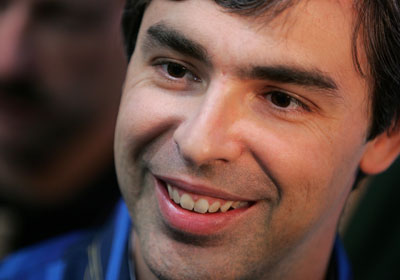Google Beats The Street After Strong Quarter

Google posts strong quarterly results amid fresh concerns over the health of CEO Larry Page
Google has beaten analysts’ estimates for its revenue and profits for the third quarter of 2013, but new concerns arise about the health of CEO Larry Page.
Google posted a profit of $2.97 billion (£1.8bn) and revenue of $14.89 billion (£9.2bn), according to figures released 17 October by the company during an earnings call with financial analysts.
Health Concern
The $14.89 billion revenue total was up 12 percent from the same quarter a year ago, while the $2.97 billion profit was up from the $2.18 billion (£1.3bn) profit that was posted in the third quarter of 2012, according to the company. The third quarter ended 30 September, 2013.
 “Google had another strong quarter with $14.9 billion in revenue and great product progress,” Google CEO Larry Page said during the conference call, his voice apparently still very hoarse from vocal paralysis that has been affecting him for more than a year. “We are closing in on our goal of a beautiful, simple, and intuitive experience regardless of your device.”
“Google had another strong quarter with $14.9 billion in revenue and great product progress,” Google CEO Larry Page said during the conference call, his voice apparently still very hoarse from vocal paralysis that has been affecting him for more than a year. “We are closing in on our goal of a beautiful, simple, and intuitive experience regardless of your device.”
Lots of changes have come for the company since Google began its journey in 1998, said Page. “For years everyone talked about the multiscreen world,” said Page. “Now it’s arrived, but on a scale no one imagined. Screens are proliferating. When Android was still a skunk works project, I used to feel kind of guilty visiting the team” because Google was centered on search and not on operating systems. “It turns out that was a lot of misplaced guilt.”
Interestingly, before passing on the microphone to Google Chief Financial Officer Patrick Pichette, Page announced that “going forward, I won’t be joining every earnings call,” which he will leave in the hands of Pichette and other Google executives. The reason, he said, is to “prioritise my time for the benefit of the business.”
Page’s surprising remarks certainly could leave open concerns about his health and hoarseness, as he has been a part of the company’s earnings calls for years.
Financial Performance
Google’s GAAP operating income in the third quarter of 2013 was $3.44 billion (£2.1bn), or 23 percent of revenue, compared with operating income of $2.74 billion (£1.7bn), or 21 percent of revenue, in the third quarter of 2012.
The company listed its advertising traffic acquisition costs (TAC) for the quarter at $2.97 billion (£1.8bn), or 24 percent of advertising revenue.
Revenue for Google’s Motorola Mobility unit sank to $1.18 billion (£731m), or 8 percent of consolidated revenue for the quarter, compared with $1.78 billion (£1.1bn), or 13 percent of consolidated revenue one year ago, according to Google.
Google presently has about 46,421 full-time employees, including 4,259 in its Motorola Mobility unit, according to the company. That compares to 44,777 full-time employees, including 4,599 at Motorola Mobility, on 3 June.
Acquisition Fund
In July, Google posted a second quarter profit of $3.23 billion, which fell short of analysts’ expectations, according to an earlier eWEEK report. Total revenue for Q2 grew 19 percent from the same quarter in 2012 to $14.11 billion (£8.7bn).
In April, Google’s Pichette revealed at a technology conference that the company had stashed away $48 billion (£30bn) in cash to give it free rein and lots of financial options in the marketplace should tantalising acquisition targets show up in its cross hairs.
In July 2012, when Google posted its first results since it acquired Motorola Mobility, the company posted second-quarter revenue of $12.2 billion (£7.5bn), a 35 percent year-over-year increase from 2011. Google’s $12.5 billion (£7.7bn) acquisition of Motorola was completed in May 2012.
In 2012, Google raked in revenue of $50.18 billion (£31bn) and $10.7 billion (£6.6bn) in profit for the year, surpassing the $50 billion annual revenue plateau for the first time in the company’s history. Google had earned $38 billion (£23.5bn) in revenue and profits of $9.7 billion (£6bn) in 2011.
In October 2012, Google suffered an embarrassing early release of its third-quarter Form 8-K report to the US Securities and Exchange Commission’s Website, which meant the financial data was accidentally available four hours before the stock market was set to close. That accidental report release triggered an early sell-off in Google shares, with share prices dropping by about 9 percent before the sale of shares were eventually halted.
Are you an expert on Google? Take our quiz!
Originally published on eWeek.